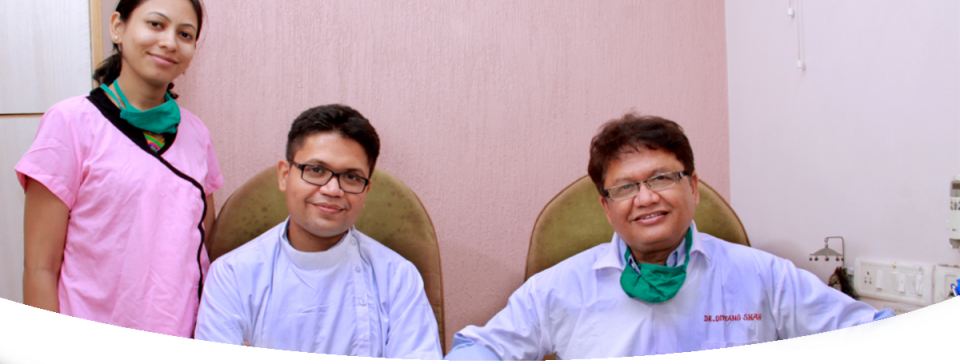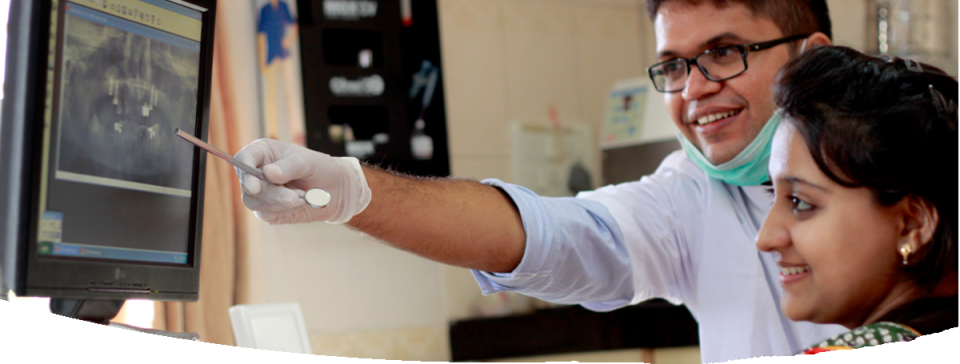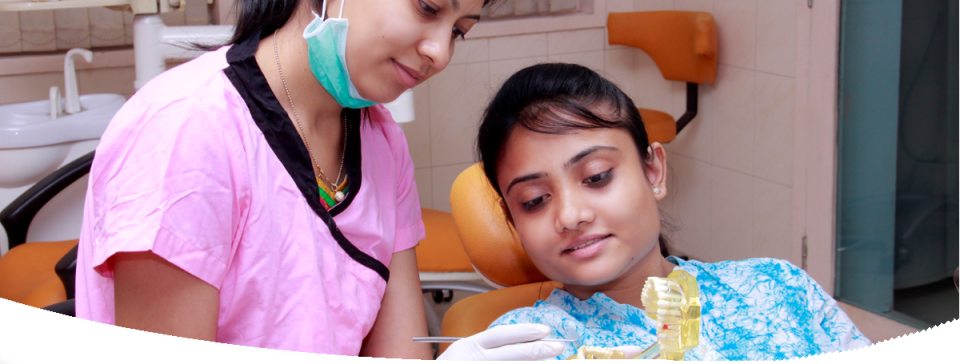Painless Dentistry is the cornerstone of all our treatments. Various technologies like ultrafine needles, sedation dentistry, longer acting anesthetic solutions are employed to present you the most pleasant dental experience ever. Our painless treatment options are sure to entice even the most fearful dental patients and strive to change their attitude.
Sedation Dentistry:
To alleviate the anxiety, certain pharmacological agents are administered, which allow the patient to sleep partially while dental treatment is performed. Under conscious sedation, you’ll be able to hear, see and respond to the action taking place around you in the dental office, but you are much less likely to experience anxiety from it. This also reduces your sense of pain.
There are three kinds of conscious sedation used in dentistry:
- 1. Oral sedation
- 2. Inhalation sedation
- 3. IV sedation
Please note that for your added safety, we call anesthetist doctor for all sedation procedures.
Oral Sedation
The dentist will prescribe a pill to take an hour before your scheduled dental visit. You must have someone drive you to and from your appointment. When you arrive at the dental office, you will be awake and feeling drowsy and relaxed.
While in the treatment area, the dental staff will monitor your vital signs throughout your appointment. Oral sedatives have no pain-relieving qualities, so local anesthetics are used to prevent pain. Because you are so relaxed and because of the use of painless injection techniques, you will probably not remember when your mouth was actually being “numbed.”
When your treatment is completed, your friend or relative will drive you home. When you are fully awake, you will feel comfortable, relaxed and free from stress. You will probably remember very little about your dental appointment. You should not operate a motor vehicle for the next 24 hours after receiving oral sedation.
Inhalation Sedation (Nitrous Oxide & Oxygen)
What is nitrous oxide and oxygen sedation?
The mixture of nitrous oxide and oxygen (“laughing gas”) has been used in dentistry and for other medical settings for many decades.
What can I expect from inhalation sedation?
When seated in the treatment area, the dentist places a small mask over your nose to deliver the gas mixture. When your treatment is completed, the nitrous oxide is turned off and you will be given pure oxygen until you feel completely normal. When the effects of nitrous oxide have completely worn off, you will feel fully awake and alert and will probably remember very little about your dental experience. You will be able to drive yourself home and do anything else you would do during a normal day.
IV Sedation
IV stands for intravenous. IV sedation medication is delivered through a very small needle placed in the back of your hand or within your inner elbow. Because of its rapid effect, many patients prefer this relaxation option.
What are the benefits of IV sedation?
Just like other forms of sedation dentistry, IV sedation will relax you and make you completely comfortable. IV sedation also eliminates your anxiety and pain. If you have a bad gag reflex or difficulty sitting in a dental chair for long periods, IV sedation will help you with that as well. You’ll be so relaxed that you may be unaware of the sights, smells and sounds of the dental office, but still able to respond to verbal cues from the dentist. Patients remember little to nothing of their appointment by the next day.
IV sedation gives your dentist optimum control of the amount of medication administered – your level of sedation can be increased or decreased quickly and comfortably.
Am I a good candidate for IV sedation?
During your first appointment, the dentist will gather a complete health history, evaluate your needs, perform a preliminary oral exam and explain the recommended procedures.
It’s critical to tell your dentist about all medications and supplements you take so they can check for any potential drug interactions with the sedation medications. Safety always comes first.
What will my actual treatment appointment be like?
You should not eat or drink anything eight hours before your IV sedation appointment and a companion is required to take you to and from the dental office. The anesthetist present at Bhavna Dental Clinic will monitor your blood pressure, heart rate and rhythm, oxygen level and pulse throughout the appointment. Upon administration of IV medication, you will quickly begin to feel relaxed and at ease.
There is no set amount of recovery time, because every patient is different. Many patients begin to feel more alert soon after the IV medication is stopped; however, you should not drive or operate heavy machinery for at least 24 hours after the end of your appointment.








